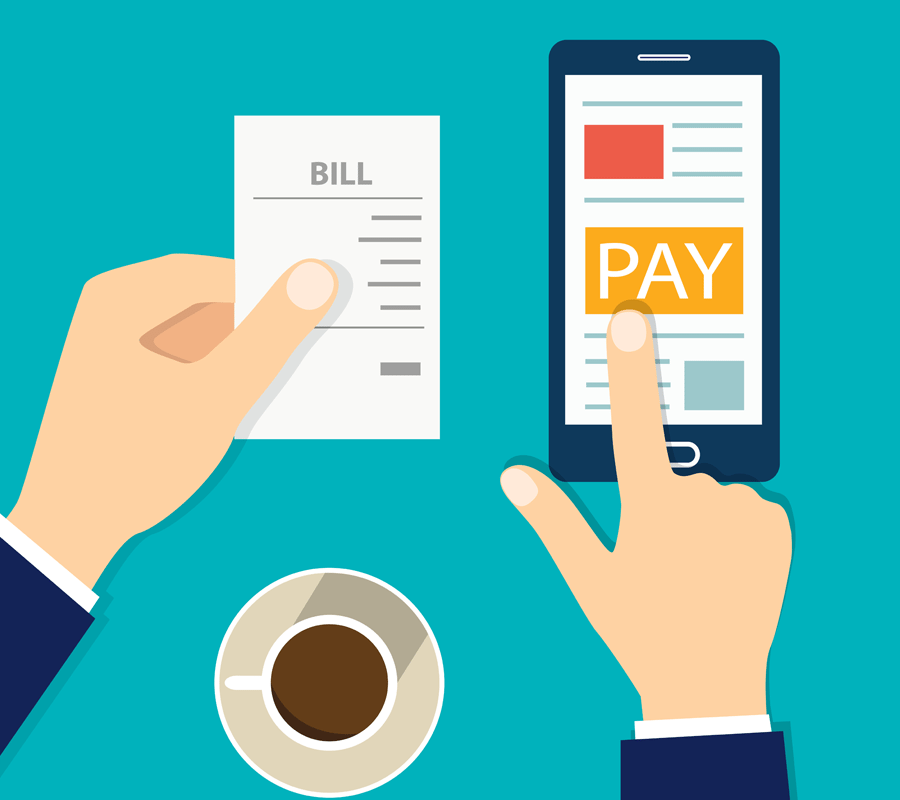Paying bills internationally can seem daunting. You may worry about high fees, poor exchange rates, and slow transfer times But it doesn’t have to be difficult or expensive to pay bills overseas
In this comprehensive guide, I will show you 10 easy and affordable ways to pay international bills. As the founder of this personal finance blog, I want to help you send money abroad with confidence.
How International Payments Work
Before looking at the various methods, let’s first understand how international payments work
When you need to pay a bill to an overseas recipient, you are essentially transferring money from one country to another. This involves a currency exchange from your home currency to the currency of the recipient.
The exchange rate determines how much the foreign currency will cost in your home currency. Exchange rates fluctuate constantly.
Your bank or money transfer service may charge fees on top of the exchange rate to process the international payment. These fees are either flat fees or a percentage of the transfer amount.
You can pick the quickest and cheapest way to send money overseas if you understand these basic ideas.
10 Ways to Pay International Bills
Here are 10 common ways to pay bills and invoices to recipients abroad:
1. Bank Wire Transfer
This traditional option allows you to wire money directly from your bank account into the recipient’s overseas bank account. Most major banks like Chase, Citi and Wells Fargo offer this facility.
Pros:
- Available at all banks
- Perceived safety of banks
Cons:
- Slow transfer times of 1-4 days
- High fees of $40-$50 or more per transfer
- Unfavorable exchange rates
Overall, bank wires should only be used for large transfers above $5000 where you need added security. For smaller transfers, the fees can eat up much of the transfer amount.
2. Online Money Transfer Services
Services like Wise, WorldRemit and OFX offer online international money transfers using better exchange rates and lower fees than banks.
Pros:
- Low fees starting from $1
- Fast transfers in hours or days
- Excellent exchange rates saving you money
Cons:
- Transfers above $10,000 may need extra verification
I recommend using these over regular bank transfers for most international bill payments.
3. Cash Pickup Services
Options like Western Union and MoneyGram allow the recipient to pick up the money you send in cash at an agent location.
Pros:
- Convenient cash pickup
- Large agent network
Cons:
- Higher fees of about 5-10% of transfer amount
- Poor exchange rates
Use these only if your recipient doesn’t have a bank account and needs cash urgently.
4. Foreign Bank Account
Open a bank account in the country you frequently send bill payments to. Transfer larger lump sums into this account periodically, then pay individual bills domestically from there.
Pros:
- Avoid international transfer fees
- Faster domestic payments
Cons:
- Need to visit country to open account
- Minimum balances may apply
This works best if you pay multiple bills in one country.
5. Cryptocurrency
Use Bitcoin or stablecoins like USDC to send value globally and instantly. The recipient can exchange the cryptocurrency for local currency.
Pros:
- Near instant transfers
- Lower fees
Cons:
- Volatile cryptocurrency prices
- Need recipient to cash out via exchanges
With crypto gaining mainstream adoption, this option will likely grow in popularity.
6. Money Transfer Apps
Apps like Venmo, Cash App and PayPal allow you to send money instantly to anyone else with the same app installed.
Pros:
- Fast and easy transfers
- Lower fees at 1-3%
Cons:
- Recipient needs the same app
- Smaller transfer limits
These apps are great for smaller personal transfers but may not work for formal business bills.
7. Debit/Credit Card
Many overseas businesses accept Visa and Mastercard cards for invoice payments.
Pros:
- Simple and fast payments
- No need to pre-fund accounts
Cons:
- Cross-border fees of 3-4%
- Currency conversion markup
Cards are OK for small invoice amounts where convenience outweighs higher costs.
8. Online Wallets
Services like Skrill and Neteller allow online wallet-to-wallet transfers.
Pros:
- Fast transfers to supported countries
- Lower 1% fees
Cons:
- Both sender and recipient need an account
- Smaller transfer limits
These are worth considering for ecommerce or online gaming payments within their networks.
9. Mobile Payment Apps
In some countries, mobile payment apps like GCash (Philippines), Paytm (India), and M-Pesa (Kenya) are hugely popular. These allow instant local transfers.
Pros:
- Super fast local payments
- Low or no fees
Cons:
- Limited to sender and recipient being in same country
When paying bills in countries where these apps have wide usage, they can be the cheapest option.
10. Cash in Mail
As a last resort, you can mail physical cash letters internationally, though many countries have restrictions.
Pros:
- No digital footprint for payment
Cons:
- Risk of loss or theft
- Slow delivery times
- Postal service fees
Unless you have an urgent need for a completely discreet offline transfer, cash in mail should be avoided due to risks and delays.
Key Considerations for International Payments
To choose the best option, consider:
-
Transfer amount – Larger transfers over $1000 give you more provider choices. Smaller amounts under $200 may be cheaper using a card or mobile app.
-
Transfer speed – Bank wires are slow; apps and crypto are fast. Choose based on how quickly the recipient needs the funds.
-
Recipient’s capabilities – If they lack a bank account, cash pickup services work better.
-
Fees and exchange rates – Compare total costs across providers. Fee-free isn’t always the cheapest when the exchange rate is marked up.
-
Convenience – Consider easy of use for you and the recipient. Apps can be simpler than coordinating bank transfers.
-
Compliance – Some providers may need ID verification for larger transfers or specific countries.
-
Security – Evaluate risks and provider reputation. Registered money transmitters offer recourse in case of errors or fraud.
Make International Payments Stress-Free
Avoid exorbitant bank wire fees and poor exchange rates. Apps and modern online transfer services mean you can send money abroad conveniently, safely and cheaply.
Choose the option that best fits your specific payment needs in terms of cost, speed, convenience and security. With the right solution, you can pay international bills with confidence and not have to dread the process.
Quick and easy international payments
Available in 17 currencies to more than 40 different countries, our International Bill Pay services allow you to schedule payments for things like rent or utilities easily no matter where you are in the world.*
Use International Bill Pay to make recurring and/or one-time payments in the Australian Dollar, Bulgarian Lev, Canadian Dollar, Czech Republic Koruna, Danish Krone, Euro, Great Britain Pounds, Hong Kong Dollar, Israeli Shekel, New Zealand Dollar, Norwegian Krone, Polish Zloty, Romanian Leu, Singapore Dollar, South African Rand, Swedish Krona, and the Swiss Franc.
- One-time or recurring payments available.
- Payments go directly to your payee or creditor.
- Low fees of $1.00 online and $2.00 in-branch.
- International Bill Pay is available through Online Banking and the Service Credit Union mobile app.
- Automatically add payee info with photo capture (available for German bills only).
- Euro payments should reach the beneficiary within 1 – 2 business days. Processing of non-Euro payments may take 3-5 business days.

Compare the American dollar against currency elsewhere in the world. We update foreign currency exchange rates daily after 4 pm CET, at the end of the European Union trading day, so you always know the value of your American dollar.

Utilizing the Single Euro Payments Area (SEPA), makes transactions between European countries quick and easy. Simply present your International Bank Account Number (IBAN) and the Service Credit Union Bank Identifier Code (BIC) to authorize a debit on your account.

Since many European merchants don’t accept major credit and debit cards, V PAY offers a smart and secure way to shop. V PAY is accepted throughout much of the European Union and works just like a debit card.
*Recurring International Bill Pay payments are available only from a Service CU checking account. One-time International Bill Pay payments are available from any share or share draft account with an available balance that is eligible to make transfers. If the account selected for payment does not have sufficient available funds at the time the transaction is processed an overdraft charge will be debited from the account and the associated payment may not be executed. Automatic debits are available only to merchants in Europe. Select any day of the week to make recurring payments weekly, biweekly, monthly, or quarterly. International Bill Pay incurs a $1.00 fee per online or mobile transaction and for recurring payments. One-time International Bill Pay transactions initiated in a branch, over the phone or through chat incur a $2.00 fee per transaction. Service CU is not liable for, and has no influence over the conversion rate applied to the conversion of the funds. All payments are transferred in the selected currency. If the beneficiary accounts to which the funds are ultimately credited is not denominated in the selected currency, the amount will be converted to the appropriate currency (i.e. British Sterling, Swiss Franc, Swedish Kroner, etc.) or returned by the receiving financial institution. Any funds returned to SCU will be converted using the reconversion rate in effect on the date of credit.
BILL International Payments
How to choose an international payment method?
When choosing an international payment method, there are several factors to consider. The first and most important factor is the security of the transaction. This includes protecting personal information and financial details. You also should ensure that the funds reach their intended recipient without any delays or errors.
How much does it cost to send money internationally?
The typical cost for an international wire transfer sent from the U.S. is $45. You’ll likely pay lower costs and your recipient will get the money faster by using one of the following licensed money transfer companies instead of your bank. Here are five options for the best way to send money internationally. Coverage from the U.S.:
How do I make international money transfers?
International money transfers with traditional banks or paying with credit cards can be convenient to do, but they can often end up being costly. Western Union and WorldRemit can be good options if the recipient doesn’t have a bank account, whereas PayPal can be fast if you already have a PayPal account.
Where can I send money to pay my bills?
Providers with cash pickup. While many bills these days are paid electronically, sometimes you need to send cash. Western Union, MoneyGram and Ria offer fast, reliable transfers that your recipient can collect in cash from agents worldwide. Checks and money orders.

